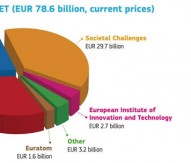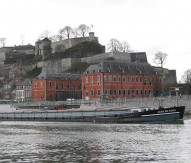
Professor Miguel Seabra elected next Science Europe president
The General Assembly of Science Europe has unanimously elected Professor Miguel Seabra, president of the Portuguese Science and Technology Foundation (FCT), as the next president of Science Europe.
Seabra will take over from Professor Paul Boyle, chief executive of the UK’s Economic and Social Research Council (ESRC), who will step down as president of Science Europe at the end of August 2014, when he takes up a new position as vice-chancellor of the University of Leicester, UK. The new president will take up the position as of 1 September 2014, for a two-year term.
Boyle said: “I welcome the appointment of Miguel as the next president of Science Europe. Miguel has already played an instrumental role in the General Assembly and as a member of the Governing Board. He will undoubtedly lead the organisation from strength to strength and I wish him well in his endeavours.”
Seabra was previously director of the Centre for Chronic Diseases at the Medical School of the Universidade Nova de Lisboa, Portugal. He retains full professorship at the university, where he co-ordinates teaching and research in cellular and molecular medicine and holds several chairs.
He is a leading researcher in the field of membrane trafficking and disease. He started his career with a degree in medicine from the Universidade Nova de Lisboa Medical School in 1986 and a PhD in Biochemistry and Molecular Biology from Southwestern Medical Center, University of Texas, USA, where he was Associate Professor between 1994 and 1997. He then moved to the Biomedical Science Division of Imperial College Medical School, UK, where he became full professor and head of unit from 1999-2006.
“I am flattered and honoured by this nomination,” said Seabra during a speech in front of the Science Europe General Assembly. “Science Europe has come a long way since 2011. It has established itself as the voice of research funding and performing organisations in Europe. My vision for the organisation – which I believe is shared by all members – is to establish Science Europe as a pivotal stakeholder in shaping European science policy.”





